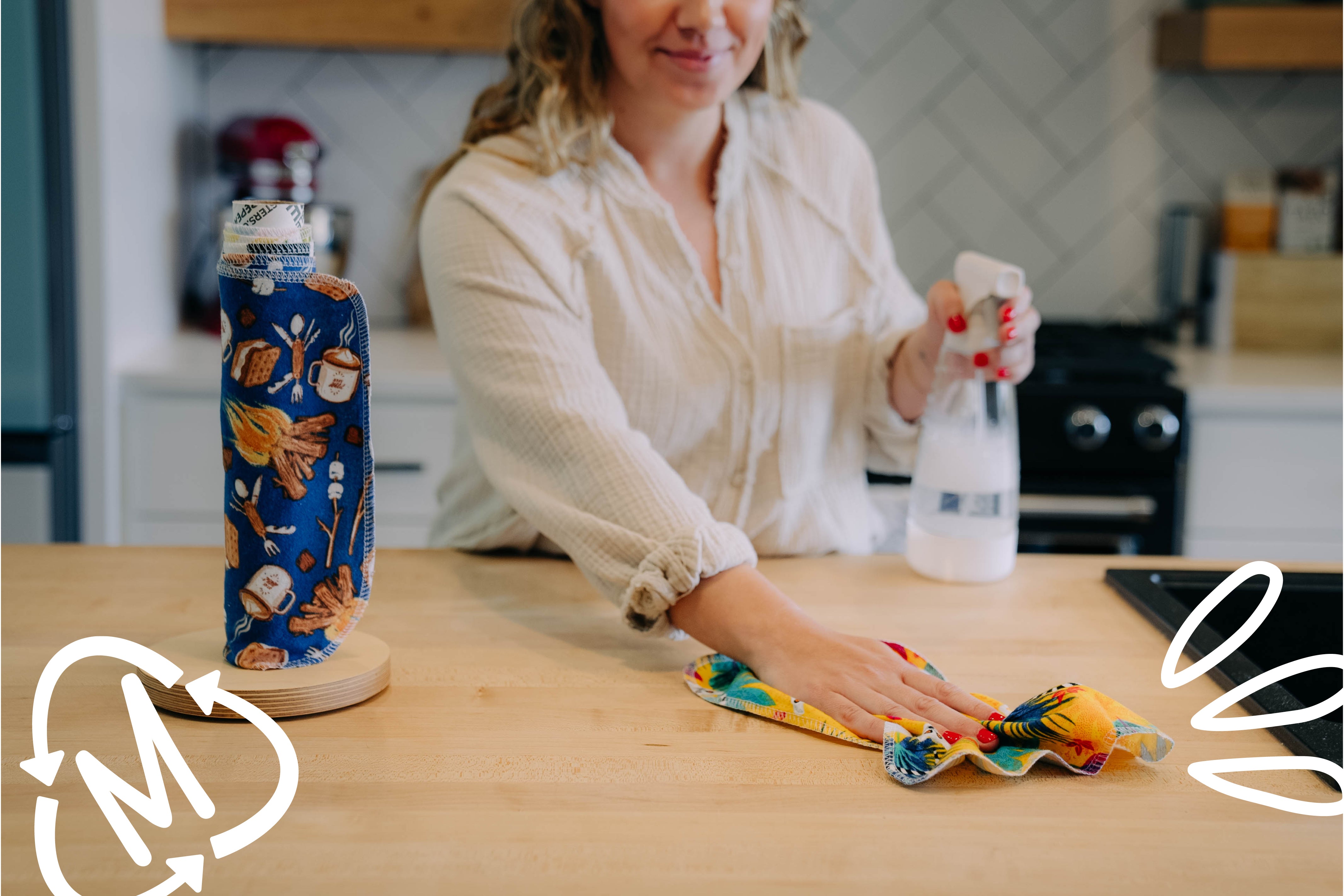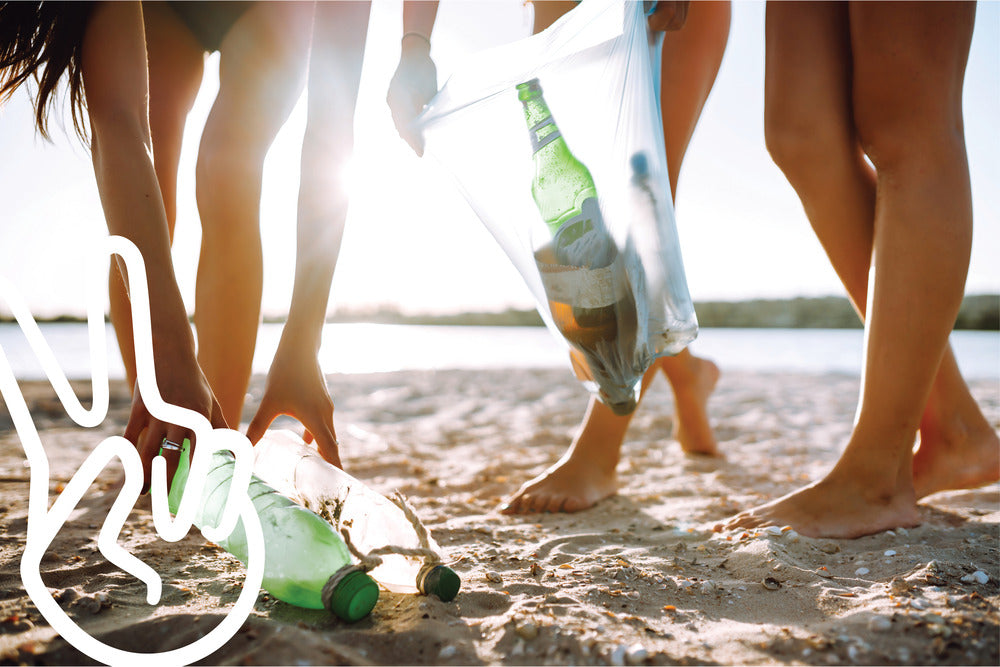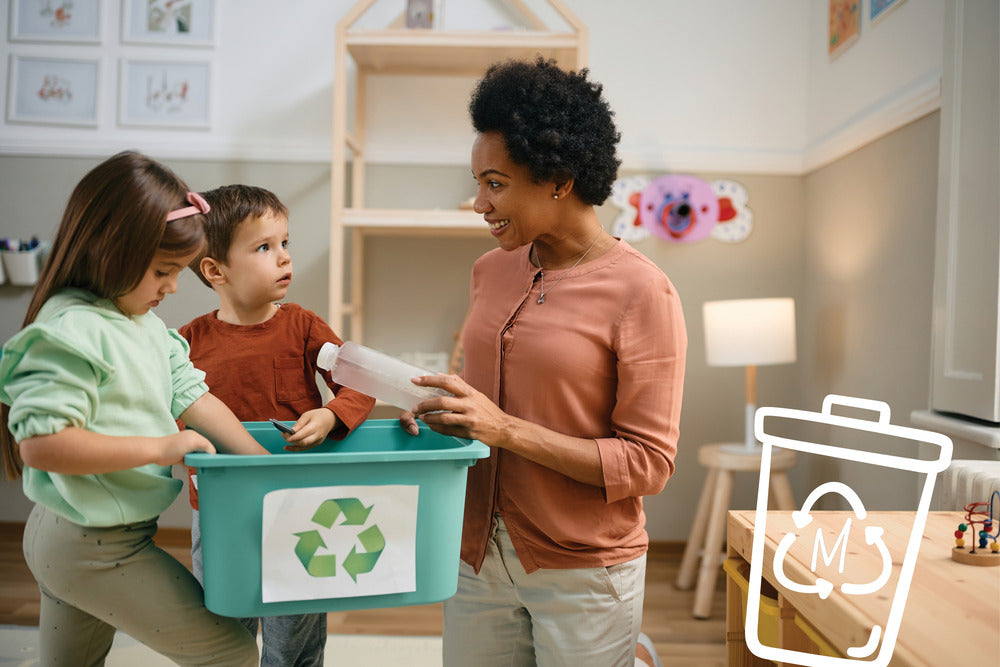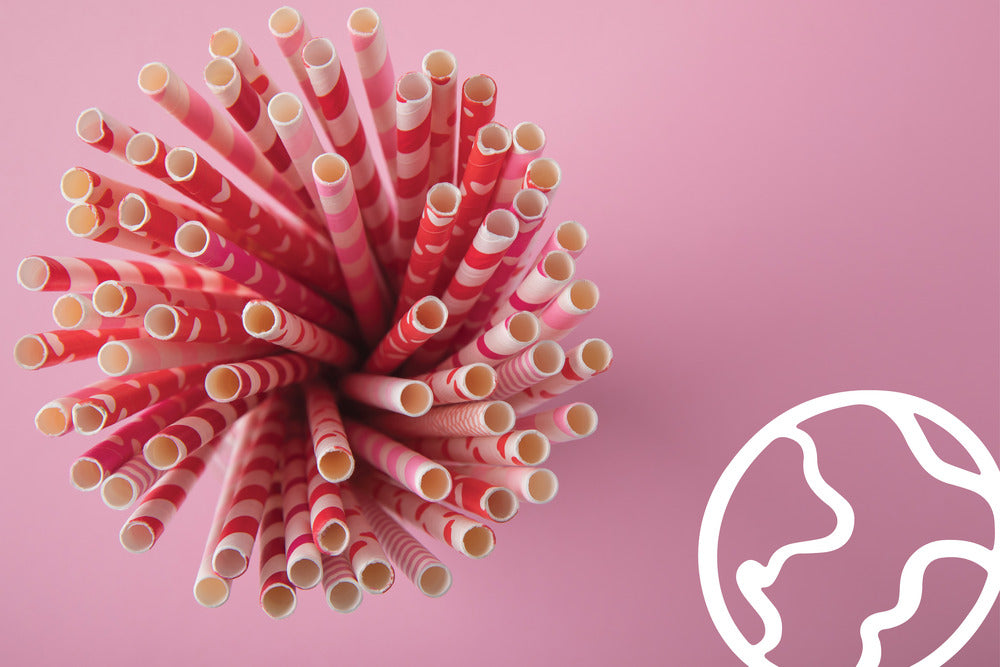When it comes to household cleaning, paper towels are a go-to for many, praised for their convenience and effectiveness. Yet, in an era where environmental sustainability is more critical than ever, it's essential to scrutinize the true impact of these everyday items. Are paper towels really as eco-friendly as they appear, or do they carry hidden environmental costs? At Marley’s Monsters, the creators of the innovative UNpaper® Towels, we believe it’s time to challenge common misconceptions and explore greener alternatives. In this blog, we’ll dive deep into the environmental ramifications of paper towels, debunk popular myths, and highlight why making the switch to reusable options is a step towards a more sustainable future. Let’s uncover the truth together and see if paper towels deserve their spot in your eco-conscious home.

Myth 1: Paper Towels are Convenient and Environmentally Friendly
The Truth:
Paper towels are certainly convenient, but their environmental impact is significant. Traditional papermaking processes require several gallons of water to produce just a single pound of paper. For paper towels, which often undergo additional bleaching and embossing, the water usage is even higher. This process not only consumes vast amounts of water but also involves the use of chemicals that can be harmful to the environment.
Myth 2: Reusable Towels Are Just As Bulky as Extra Laundry
The Truth:
A common concern is that adding reusable towels to your laundry will significantly increase the load. However, Marley’s Monsters’ UNpaper® Towels are designed to be compact and efficient. A 24-pack of these towels takes up the same space in your washing machine as a men’s long-sleeved, midweight flannel shirt. This means you can easily fit them into your regular laundry cycle without adding a ton of extra bulk. While the ultimate reusable family may occasionally have an extra load, it’s generally minimal and manageable.
Myth 3: Using More Water to Wash Reusable Towels is Worse than Making Paper Towels
The Truth:
Some argue that the water used to wash reusable towels is more than what is used to produce paper towels. Let’s break this down. If you’re already doing laundry, adding a few UNpaper® Towels to your load is barely noticeable. On the other hand, producing paper towels requires significant water usage upfront. By integrating reusable towels into your existing laundry routine, you’re not only reducing waste but also minimizing your overall water footprint.
Myth 4: Any Cleaning Cloth is the Same as UNpaper® Towels
The Truth:
At Marley’s Monsters, the belief is that any reusable cloth is better than a single-use paper towel. However, UNpaper® Towels are specifically designed for durability and effectiveness. They are made from 100% cotton flannel, which becomes more absorbent with each wash, making them an excellent choice for sustainable living. While any cloth can be used, the quality and longevity of UNpaper® Towels make them a superior option.

The Bigger Picture
Switching to reusable towels like Marley’s Monsters’ UNpaper® Towels is a simple yet impactful step towards a more sustainable lifestyle. Consider the broader implications: every time you use a paper towel, you're contributing to deforestation, water consumption, and chemical pollution. The traditional papermaking process uses twenty thousand gallons of water to make one ton or 2,000 rolls of paper towels. Manufacturing of paper towels also involves energy-intensive manufacturing and transportation, further increasing its carbon footprint.
By opting for reusable alternatives, you're actively reducing the demand for single-use products, which helps decrease the number of trees cut down annually. Trees are crucial for absorbing CO2 and maintaining ecological balance, and preserving them contributes to fighting climate change. Moreover, the reduction in manufacturing paper towels translates to fewer pollutants released into our water systems and atmosphere, mitigating the adverse effects on both wildlife and human health.
UNpaper® Towels, made from 100% cotton flannel, are designed for long-term use. Their durability means you won’t need to replace them frequently, unlike their paper counterparts. This longevity results in fewer resources being consumed over time, further lessening your environmental impact. Additionally, as they become more absorbent with each wash, their effectiveness increases, providing superior cleaning capabilities without the need for multiple sheets, as often required with paper towels.
Moreover, the convenience factor of integrating these reusable towels into your existing laundry routine cannot be overstated. By simply adding them to your regular wash, you’re maximizing resource use without significant additional effort or water consumption. This practice aligns with sustainable living principles, where small, consistent actions collectively make a substantial difference.

The choice to switch from paper towels to reusable options like Marley’s Monsters’ UNpaper® Towels extends beyond a simple household decision. It represents a commitment to reducing waste, conserving natural resources, and protecting our planet for future generations. By making this change, you’re not only decreasing your own environmental footprint but also setting an example for others. Your small change can make a big difference, proving that when it comes to sustainability, every action counts. Embracing reusable towels contributes to a larger movement towards eco-friendly living, emphasizing that thoughtful consumer choices are crucial in the fight against environmental degradation.
Moreover, adopting UNpaper® Towels encourages a broader mindset shift towards sustainability. It promotes awareness of our daily consumption patterns and their environmental consequences. This shift can inspire other eco-friendly habits, such as composting, reducing plastic use, and choosing energy-efficient appliances, fostering a holistic approach to green living. Let’s work together to create a cleaner, greener world, one towel at a time. With every reusable towel you incorporate into your routine, you’re taking a stand for a healthier planet and a more sustainable future.







